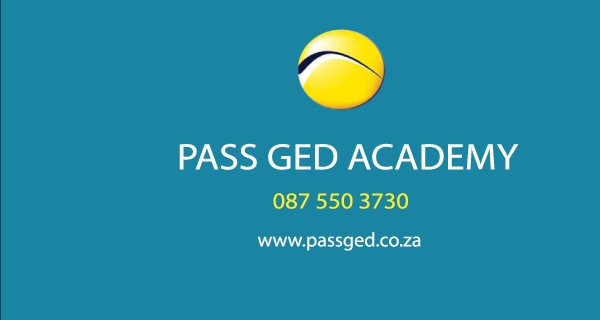Wat is tuisonderwys?
In tuisonderwys leer ouers, gewoonlik die ma, hul/haar kind by die kind se eie huis. In die Suid-Afrikaanse wet word daar voorsiening gemaak vir drie soorte onderwys, naamlik tuisonderwys, privaatskole en staatskole.
Vir watter redes kies ouers vir tuisonderwys?
Volgens navorsing presteer tuisleerders akademies baie beter as geïnstitusionaliseerde leerders. Dit is te verstane, want tuisonderwys bied die ideale leeromgewing wat wissel van 'n verhouding van een-tot-een tot ’n verhouding van byvoorbeeld een-tot-ses, en waarin die kinders onmeetbaar meer aandag kry as wat selfs vir die sorgsaamste onderwyser in 'n skool fisies moontlik is.
Tuisonderwys is uitmuntend geskik vir kinders met spesiale behoeftes, soos 'n kind met 'n besonder hoë of besonder lae intelligensie, of met spesiale talente, byvoorbeeld 'n kind wat baie begaafd is in musiek of sport of skaak, of kinders met spesiale leerbehoeftes. Die meeste ouers rig dan ook hul tuisonderwys so in dat hulle voorsiening maak vir hul kinders se spesifieke behoeftes en vaardighede. '’n Mens hoef dan ook nie al die vakke op dieselfde vlak te doen nie. As die kind baie vaardig is in Wiskunde, is daar niks wat hom keer om aan te gaan met die volgende jaar se werk indien hy/sy klaar is met daardie jaar se boeke nie. Of omgekeerd: as die kind nie die jaar se Engels baasraak nie, gaan hy eenvoudig terug na die vorige jaar se boeke en soek saam met sy ouers die haakplek en ruim dit uit die weg. Meer inligting oor tuisonderwys vir kinders met spesiale behoeftes kan gevind word op die webwerf van die National Challenged Homeschoolers Associated Network.
Baie ouers kies vir tuisonderwys vir godsdienstige en filosofiese redes. Hulle kies tuisonderwys omdat hulle nie instem met die waardes wat by publieke skole oorgedra word nie. Hulle wil ook meer tyd bestee om hulle kinders te onderrig in hulle godsdiens en tuisonderwys gee vir hulle meer tyd om dit te doen.
Ouers kies ook dikwels vir tuisonderwys omdat sterk familiebande vir hulle belangrik is. In ‘n tuisskoolgesin spandeer ouers, broers en susters baie meer tyd met mekaar en so ontstaan daar sterk familiebande. Alhoewel broers en suster dikwels baie kan baklei word hulle ook dikwels beste vriende.
Ander ouers probeer hulle kinders beskerm van probleme wat voorkom in publieke skole soos geweld, boelies, dwelms en die waardes wat oorgedra word deur portuurgroepe.
Moet ek registreer by die Departement van Onderwys?
Die SA Skolewet vereis dat ouers hulle kinders moet registreer vir onderwys tuis. Hierdie registrasie moet gedoen word by die provinsiale department van onderwys. Die praktyk is egter dat meeste provinsiale onderwysdepartemente nie die administratiewe vermoëns het om kinders te registreer vir tuisonderwys nie.
Sommige van die groter provinsies het ’n beperkte administratiewe vermoë om wel tuisleerders te registreer. Ongelukkig egter het die amptenare by daardie departements baie beperkte insig in tuisonderwys en die wetlike voorskrifte oor tuisonderwys. As gevolg van hierdie beperkte insig vra hierdie amptenare dat ouers aan allerhande vereistes moet voldoen wat nie deur die wet voorgeskryf word nie, voordat hulle kan registreer vir tuisonderwys. As gevolg van hierdie situasie is meer as 90% van tuisskool gesinne nie geregistreer by die Departement van Onderwys nie. Kliek hier vir 'n konsultasie sessie om u te adviseer vir u spesifieke situasie.
Hoe moet ek my kinders uit die skool haal?
Dit is u reg om te besluit watter tipe onderwys die beste is vir u kind. Of dit nou tuisonderwys of skoolonderwys is. U hoef nie u besluit te regverdig teenoor die skool nie. U hoef hulle slegs in kennis te stel van u besluit. Dis ook nie nodig om te wag tot die einde van die jaar of die einde van die kwartaal nie. As dit in u kind se belang is om tuisonderwys te ontvang behoort u die kind so gou as moontlik uit die skool te haal.
Wag tot dit die kind se laaste dag by die skool is. Moet nie u planne voor die tyd met die skool bespreek nie, om moontlike viktimisasie te voorkom. Dan moet die VADER die skool bel (moet nie skryf of die skool besoek nie). Skole gee heelwat minder probleme aan vaders as aan moeders. Vermeld aan die skool :”Ek het my kind oorgeplaas na tuisonderwys. Verduidelik asb. die prosedure om uitstaande skoolgelde te betaal. Baie dankie vir die goeie dinge wat my kind by die skool ervaar het. Stuur asb. die oordragsertifikaat .” Vermy om meer inligting te verskaf. Indien u in ’n gesprek of in die publiek gevra word om inligting te verskaf, wag rustig tot u ’n spreekbeurt kry en vertel dan die volgende : “Ek is baie dankbaar vir julle toegewydheid tot die beste belange van my kind. Ek kan egter nie die redes vir ons besluit oor die telefoon bespreek nie. As u enige vrae het, plaas dit asb. op Skrif en stuur dit aan ons."
Kan ek my kinders terugstuur na die skool?
Baie ouers is bekommerd dat hulle nie hul kinders sal kan terugstuur na ‘n skool as hulle eers begin het met tuisonderwys nie. Dit kan gebeur dat ’n gesin se omstandighede so verander sodat ouers genoodsaak is om hulle kinders weer na ’n skool te stuur. As ouers hulle kinders terug in ’n skool wil plaas, mag publieke skole nie diskrimineer teen kinders nie en ook nie toetse gebruik om leerders in ‘n spesifieke graad te plaas nie. Die toelatingsbeleid van publieke skole skryf die volgende voor: “Learners are to be admitted to public schools and placed in different grades in the school according to the age requirements published in the same notice.”
Kan enige ouer kan tuisonderwys gee?
'n Moeder is uniek daartoe geskape om haar kind te kan onderrig. Haar beskermende moederinstink is daar om haar kind te beskerm, en die moeder weet amper altyd die beste wat in die belang van haar kind is. 'n Moeder wat haar kind basiese lewensvaardighede kan leer, soos om "Asseblief" en "Dankie" te sê, kan ook haar kind tuisskool.
'n Ma hoef nie 'n onderwyseres of hoog geleerd te wees nie. Volgens uitgebreide navorsing wat oor die onderwerp gedoen is, het die kwalifikasies van die ouer in tuisonderwys geen invloed op die prestasie van die tuisleerder nie.
Dit is beter as 'n ma nie alles weet nie. Só bied sy aan haar kinders die waardevolle rolmodel van ‘’n persoon wat wel nie weet nie, maar wat nie bang is om uit te vind nie. Sodoende leer die kinders 'n ingesteldheid van probleemoplossing, waarsonder hulle nie die lewe kan aanpak nie.
"Kom ons kyk eers agter in die boek by die antwoorde. Of miskien kry ons die oplossing in hierdie ander handboek wat ons het, of kom ons bel die Wiskunde-juffrou hier langsaan, of kom ons vra vir Oom Boet, die elektrisiën - hy ken Wiskunde baie goed!, of wat van die Internet, of..."
Die probleemoplossingsvaardigheid en - ingesteldheid sal waarskynlik nog dié belangrikste akademiese toerusting in jou kind se lewe word.
Hoeveel tyd neem dit in beslag?
Navorsing toon dat 'n laerskoolkind in tuisonderwys gemiddeld ongeveer 2 tot 3 uur per dag neem om al sy werk te voltooi (huiswerk ingesluit) en '’n hoërskoolkind gemiddeld ongeveer 3 tot 4 uur. 'n Kind in tuisonderwys het normaalweg dus meer vrye tyd vir speel, lees, musiek, droom, gesels, stokperdjies, help in die huis en tuin, en kortom: om 'n normale lewe te lei.
Leermateriaal vir tuisonderwys
Daar is baie leermateriaal beskikbaar vir tuisonderwys in Suid-Afrika, sommige plaaslik ontwikkel, sommige uit die buiteland ingevoer; sommige op rekenaar, sommige gedeeltelik op rekenaar en sommige in handboeke. Daar is ook ouers wat ’n meer informele benadering volg en nie ’n vasgestelde kurrikulum gebruik nie.
Die materiaal wat beskikbaar is vir tuisonderwys, is gewoonlik maklik vir enige ma om te gebruik. Baie tuisskolers maak ook van afstandsonderrig-fasiliteite gebruik, wat 'n ouer met 'n kind in tuisonderwys feitlik onafhanklik kan gebruik.
Op die SAHomeschoolers webwerf is advertensies van kurrikulum verskaffers asook kennisgewings van kurrikulum uitstallings wat in verskillende streke gehou word.
Daar is nie iets soos ’n voorgeskrewe kurrikulum, of ’n kurrikulum wat die beste is vir tuisskolers nie. Ouers is self verantwoordelik die kurrikulum te kies wat die beste voldoen aan die spesifieke behoeftes van hulle gesin. Daar is egter organisasies wat ‘n konsultasiediens aanbied om ouers te help om die beste kurrikulum vir hulle gesin te kies.
In tuisonderwys is die hele lewe die kurrikulum
Tuisonderwys vind binne die lewe plaas, tussen mense van verskillende ouderdomme, in werklike lewensituasies. Een van die moeilikste dinge om te aanvaar wanneer 'n mens begin met tuisonderwys, is dat tuisonderwys iets heeltemal anders as skoolonderwys is.
As daar in tuisonderwys 'n waterpyp in die huis breek, word die loodgieter se besoek skielik 'n wonderlike leergeleentheid vir die hele gesin. In tuisonderwys pas ’n mens jou leerwerk in by Oupa en Ouma se skielike inloer, of by die jongste wat 'n pragtige spinnekop net buite die agterdeur ontdek.
Want in tuisonderwys is die hele lewe die kurrikulum. 'n Mens berei die kind voor vir die lewe, terwyl hy met sy voete vierkantig binne-in die lewe staan.
Moet die onderwys in die kind se moedertaal wees?
Navorsing het herhaaldelik bewys dat dit die beste is dat die kind sy onderwys in sy moedertaal moet ontvang. Hierdie belangrikheid van moedertaalonderwys word weereens bevestig in die media. Child Magazine berig: "Dit is boonop bewys dat Afrikaanssprekende kinders wat in hul moedertaal onderrig word, beter vaar op skool as kinders wat in Engels onderrig word, ...”. As Afrikaans die gesin se is, is dit die beste vir die kind dat die onderwys ook in Afrikaans gegee word. Daar is Afrikaanse kurrikulums beskikbaar en indien u ’n Engelse kurrikulum kies, is dit belangrik dat die konsepte in die kurrikulum in Afrikaans vertaal word vir die kind.
Wat van sosialisering?
Sosialisering is nie so 'n groot probleem as wat oningeligte buitestaanders gewoonlik meen nie.
Die navorsing wat daaroor gedoen is, bevestig wat baie tuisskoolouers wel deeglik besef, naamlik dat kinders in tuisonderwys nie 'n wesentlike probleem met sosialisering het nie. Tuisleerders sien gemiddeld net soveel mense as hul eweknieë in openbare of privaatskool, maar dit is 'n veel groter verskeidenheid mense met wie hulle te doen kry. Hulle leer dus om met baie soorte mense klaar te kom, en in hierdie opsig is dit 'n baie goeie voorbereiding op die moderne beroepswêreld, waar 'n mens selde werk saam met ’n groot groep mense wat almal presies so oud soos jy is. Veel eerder bevind jy jou vandag in 'n kleinerige groep, waarvan die ouderdomme wyd uiteenlopend is.
Wat van sport?
Daar is ook baie geleenthede vir sportbeoefening vir tuisleerders. Afgesien van sporte soos swem, tennis, perdry, gholf en ysskaats, word daar toenemend privaatklubs gestig waarby tuisskolers inskakel vir byvoorbeeld atletiek, rugby, netbal en krieket. Uitstaande sportmanne en -vroue vind dikwels dat hulle meer tyd aan hul sport kan bestee in tuisonderwys.
Daar is ’n aantal organisasies wat dit moontlik maak vir tuisleerders om deel te neem aan sport of plaaslike, provinsiale, nasionale en selfs internasionale vlak. Besoek die webwerf en klik op die “Sport” module vir meer inligting oor hierdie organisasies.
Wat kos dit om tuisonderwys te gee?
Die kostes van tuisonderwys kan wissel tussen R300 tot R30 000 per maand, afhangende of ouers gebruik maak ‘n kurrikulum of nie, afhangende van die soort kurrikulum wat gebruik word en die hoeveelheid wat ouers spandeer aan buitemuurse aktiwiteite. Daar is ook baie gratis hulpbronne beskikbaar op die Internet waarvan ouers gebruik kan maak.
Tuisonderwys word dikwels voorgestel as ’n baie duur vorm van onderwys, aangesien een van die ouers sal moet ophou werk.
Indien egter die koste verbonde daaraan dat beide ouers in ’n gesin buite die huis werk in ag geneem word, is tuisonderwys egter nie noodwendig so duur nie. Hierdie kostes sluit in belasting, skoolgelde, skoolklere, toesig oor die kinders na die skool, vervoer van kinders na en van die skool, sakgeld om kos by die skool te koop, ens. ens. Indien al hierdie kostes in ag geneem word, kan dit wees dat ’n gesin meer spandeer aan hierdie kostes as wat die tweede ouer sal verdien indien hy of sy buite die huis werk.
As gesinne mooi begroot, sal hulle dalk vind dat dit nie onmoontlik is om te oorleef met die een inkomste nie. Vir gesinne waar slegs een ouers werk kan tuisonderwys heelwat goedkoper wees as skoolonderwys. Veral waar gesinne in ’n area woon waar die broodwinner nie hoog besoldig is nie, maar waar die skole baie duur is.
Dit is egter ook nie noodwendig waar dat gesinne wat tuisonderwys gee slegs op een inkomste hoef te leef nie. Aangesien tuisonderwys minder tyd in beslag neem as skoolonderwys, kan ouers wat die tuisonderwys die orige tyd gebruik om deeltydse werk te doen. Of indien beide ouers voltyds werk maar in verskillende skofte werk, kan dit ook moontlik wees om tuisonderwys te gee. Of ouers kan saamwerk met ander ouers sodat ander ouers of familie 'n deel van die tuisonderwys behartig op dae wat hulle werk.
Ouers wat van die huis af werk, of 'n besigheid van die huis af bedryf, kan die tuisonderwys kombineer met die werk. Wanneer ouers 'n eie besigheid het, kan die kinders ook help in die besigheid. Dit op sig self is 'n leerervaring wat kinders nie by 'n skool kan kry nie.
Ondersteuning in tuisonderwys
Om op hoogte te bly oor die verwikkelinge in tuisonderwys:
Hoe om te begin
- Bepaal 'n doelwit. Bid en besin as 'n gesin saam oor wat jul ideale is vir jul kinders. Hoe wil jy graag hê jou kind moet wees oor 10 of 15 jaar? Iemand wat weet wat reg en verkeerd is? Iemand wat onafhanklik kan dink en doen? Iemand wat vir homself kan sorg en nie bang is om te werk nie?
- Win inligting in. Win inligting in oor tuisonderwys - lees daaroor, koop 'n inligtingpakket, woon inligtingseminare by, gesels met ander tuisskolers, vind uit wat die verskillende kurrikula behels.
- Sluit aan by ondersteuningsliggame om jouself op hoogte te hou van verwikkelinge en deel te bly van die netwerk van tuisskolers in Suid-Afrika. Doen 'n konsultasie oor regulatoriese sake vir gemoedsrus dat jy beskerm is teen enige onregmatige inmenging deur die owerheid of enigiemand anders in jou keuse om tuisonderwys te gee.
- Geniet dit elke dag, en wees dankbaar vir die voorreg om met jou kind te kan werk. Ontspan, en doen moeite om die lewe so stresvry moontlik vir jouself te maak, veral die eerste ruk. Onthou dat jy as ouer onmiddellik moet doen wat in die belang van jou kind is. Jy hoef vir niemand te wag om toestemming te gee of om jou kind te registreer nie. Vir meer inligting oor registrasie, lees die artikel oor regsoorwegings op SAHomeschoolers.Org.
Hoe om dit vol te hou
Vir 'n ouer is tuisonderwys een van die wonderlikste ervarings wat 'n mens ooit in jou lewe kan hê. Dit maak ouerskap werklik sinvol. Ook vir kinders is elke dag wat hulle in tuisonderwys is, 'n geskenk.
Wees bereid om koersaanpassings te maak. Wanneer ouers begin, moet hulle voorbereid wees op '’n groot verandering wat daar ook in hul lewens gaan plaasvind. Hulle leer ken hulself beter, leer hul kinders baie beter ken, en hulle leer mekaar se geselskap geniet. Ouers groei soveel as mense, en doen dinge wat hulle nooit beplan het om te leer en te geniet nie. As gesin beweeg die ouers en kinders baie nader aan mekaar, en sluit dikwels lewenslange vriendskappe.
'n Tuisonderwysgesin se rol verander gewoonlik in hulle familie en in die samelewing, want hulle sal toenemend hul keuse vir tuisonderwys moet verantwoord. In die proses maak 'n mens soms vyande maar dikwels ook onverwagse vriende, en werf tuisskolers deur hul voorbeeld dikwels baie mense vir tuisonderwys.
Raak betrokke. Namate hulle vorder met hulle tuisonderwys, by ondersteuningsliggame betrokke raak, oplees oor tuisonderwys en van inligtingsgeleenthede gebruik maak, raak tuisskolers al hoe meer betrokke in die tuisonderwysgemeenskap self, sodat hulle ook ander kan help, asook by die bevordering van goeie onderwys in die samelewing.
Elke dag wat jy jou kind in tuisonderwys het, is 'n geskenk van die Here. Dit is 'n wonderlike manier om jou doopbelofte te vervul, en om die opdrag van die Here in Deuteronomium 6:6ev na te kom: "En hierdie woorde wat ek jou vandag beveel, moet in jou hart wees; en jy moet dit jou kinders inskerp en daaroor spreek as jy in jou huis sit en as jy op pad is en as jy gaan lê en as jy opstaan..."







































